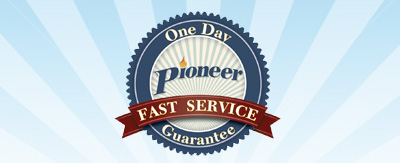Pioneer Home Comfort (previously Pioneer Gas Furnace): HVAC; Home heating; Home cooling; Air Filtration; Portland, Oregon. High Efficiency Energy Star Gas Furnace Installation in Portland, Oregon.
503.249.5000 :: Contact Pioneer Home Comfort (previously Pioneer Gas Furnace): HVAC; Home heating; Home cooling; Air Filtration; Portland, Oregon. High Efficiency Energy Star Gas Furnace Installation in Portland, Oregon.
Pioneer: "We're the Ones!"
Home Heating Systems
Tankless Hot Water Systems
Home Cooling Air Conditioning
Home Air Filtration
Commercial HVAC
Free Home Comfort Info
Rebates & Special Offers
Find us on Facebook!
Pioneer Gas Furnace can help you bring true comfort to home this season with easy financing options, including:
Energy-Savings Tips: Cooling
Heating and cooling your home uses more energy and drains more energy dollars than any other system in your home. Typically, 44% of your utility bill goes for heating and cooling. No matter what kind of heating, ventilation and air-conditioning system you have in your house, you can save money and increase comfort by properly maintaining and upgrading your equipment. Remember though, an energy-efficient furnace or air-conditioner alone will not have as great an impact on your energy bills as using the whole house approach. By combining proper equipment, maintenance and upgrades with appropriate insulation, weatherization and thermostat setting, you can cut your energy bills in half.
Whole-house Cooling Tips
- Whole house fans help cool your home by pulling cool air through the house and exhausting warm air through the attic. They are effective when operated at night and when the outside air temperature is cooler than the inside.
- Set your thermostat as high as comfortably possible in the summer. The less difference between the indoor and outdoor temperatures, the lower your overall cooling bill will be.
- Don’t set your thermostat at a colder temperature setting than normal when you turn on your air conditioner. It will not cool your home any faster and could result in excessive cooling and therefore, unnecessary expense.
- Set the fan speed on high, except in very humid weather. When it’s humid, set the fan speed on low. You’ll get better cooling.
- Consider ceiling fans to spread the cooled air more effectively through your home without greatly increasing your power use.
- Don’t place lamps or TV sets near your air conditioning thermostat.
- Plant trees or shrubs to shade air-conditioning units but do not block the airflow. A unit operating in the shade uses as much as 10% less electricity than the same one operating in the sun.
Air Conditioners
HIgh-efficiency Air Conditioners save you money!
When evaluating different AAC systems, be sure to check the SEER rating for the unit. SEER is Seasonal Energy Efficiency Rating. SEER rates the efficiency during the cooling season. Look for a seer rating of 12 or above.
Get the right size AC; Consistent run-time = Efficiency!
It might surprise you to know that buying a bigger room air-conditioning unit won’t necessarily make you feel more comfortable during the hot summer months. In fact, a room air conditioner that’s too big for the area it is supposed to cool will perform less efficiently and less effectively than a smaller, properly sized unit. This is because room units (such as P-TAC units or wall & ceiling units) work better if they run for relatively long periods of time than if they are continually, switching off and on. Longer run times allow air conditioners to maintain a more constant room temperature. Running longer also allows them to remove a larger amount of moisture from the air, which lowers humidity and, more importantly, makes you feel more comfortable. Sizing is equally important for central (or “universal”) air-conditioning systems, which need to be sized by professionals. Contact Pioneer for a free consultation!
Use fans for circulation.
If you have a central air system in your home, set the fan to shut off at the same time as the cooling unit (the compressor). In other words, don’t use the system’s central fan to provide circulation but instead use circulating fans in individual rooms.
Evaporative Coolers
Also known as a “swamp cooler”, an evaporative cooler may be installed as an alternative to air-conditioning, particularly in climates with very dry air. Evaporative coolers provide mechanical cooling to a building by either direct contact of air with water (direct evaporative cooler) or a combination of a first-stage heat exchanger to pre-cool the air and a second stage with direct air contact with water (Indirect/direct evaporative cooler). These are not as common or effective in areas such as Portland, Oregon, where our summers are generally more humid than areas like the Southwest.
